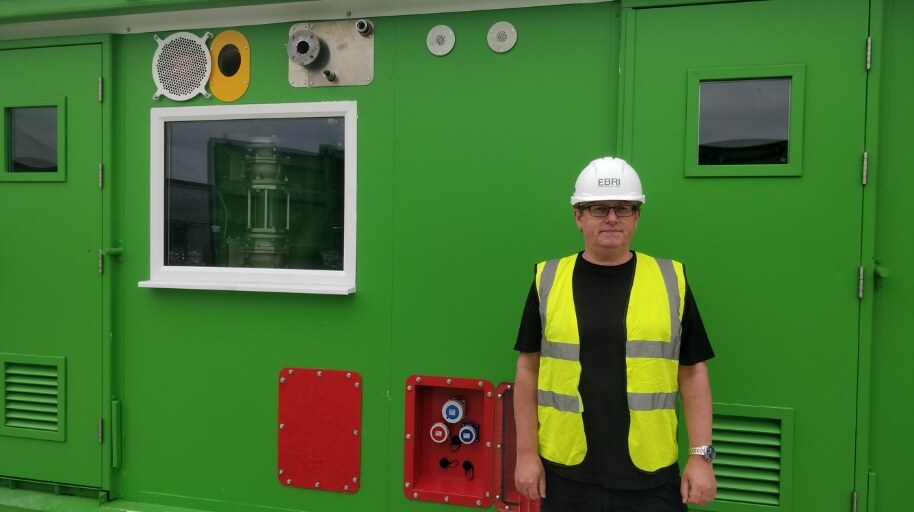New Biochar technology installed by EBRI to combat climate change in Birmingham

• New Urban Biochar greenhouse gas reduction and Sustainable Materials Demonstrator now installed at horticultural nursery site on outskirts of Birmingham
• The project is being delivered by the Energy and Bioproducts Research Institute (EBRI) based at Aston University after being granted Local Growth Fund (LGF) funding from the Greater Birmingham and Solihull Local Enterprise Partnership (GBSLEP)
• Urban tree waste from around city will be made into biochar, a sustainable form of charcoal which can be used for carbon capture, soil improvement and a range of industrial applications.
State-of-the-art equipment is now in place at a horticultural nursery on the outskirts of Birmingham which will be producing biochar from urban tree waste from around the city.
The project, called the ‘Urban Biochar and Sustainable Materials Demonstrator’, is being led by the Energy and Bioproducts Research Institute (EBRI) based at Aston University and is being funded by Local Growth Fund (LGF) from the Greater Birmingham and Solihull Local Enterprise Partnership (GBSLEP), as well as the EU European Regional Development Fund (ERDF)
The equipment, which was delivered and installed at Birmingham City Council’s Cofton Nursery near the Lickey Hills in August will be used to process tree waste produced around the city and Solihull area, using a thermal conversion process to create the biochar.
Biochar is a sustainable form of charcoal made from organic waste and has a variety of uses, including carbon capture, water treatment, soil improvement, odour control and industry applications.
Tim Miller, director of engagement at EBRI, said it was an important landmark project for the city and they would be looking soon to businesses within the area who could benefit from using the biochar product.
He added: “It’s exciting to see our urban biochar demonstrator now in place at Cofton Nursery and we are working with local and UK companies to deliver the project. Over the coming weeks we will be announcing more about how biochar can make a difference to both the environment and the economy of our cities and towns, and how local organisations can benefit from becoming involved.
“By taking waste residues, such as diseased and fallen wood from trees in our streets and parks, our demonstrator contains the technology to convert such unwanted material into useful, high value bioproducts, such as biochar, and energy such as oils and gases.
“By combining this innovative technology with EBRI’s scientific expertise in the field of biochar, we plan to raise awareness of the benefits this sustainable material offers including climate change mitigation (carbon capture), soil enhancement, water treatment and industrial applications,” he said.
Mr Miller added that in the coming weeks they would be announcing what type of organisations could benefit from this demonstrator, and how they can become involved. Currently the technology is also providing heating for the garden centre.
Greater Birmingham and Solihull Local Enterprise Partnership (GBSLEP) Net Zero Board Champion, Councillor Ian Courts, Leader of Solihull Council added: “GBSLEP has invested in projects to drive the growth of our low carbon and energy technology sector. The £306,000 grant from our Local Growth Funding has enabled this state-of the-art equipment to be installed.
“It will convert tree waste from homes across Solihull and Birmingham into a sustainable energy use for our businesses. This project is a fantastic example of how we are locally supporting the Government’s Ten Point Plan for a Green Industrial Revolution.”
For further details about the plant, email [email protected] or call 0121 204 3383.




